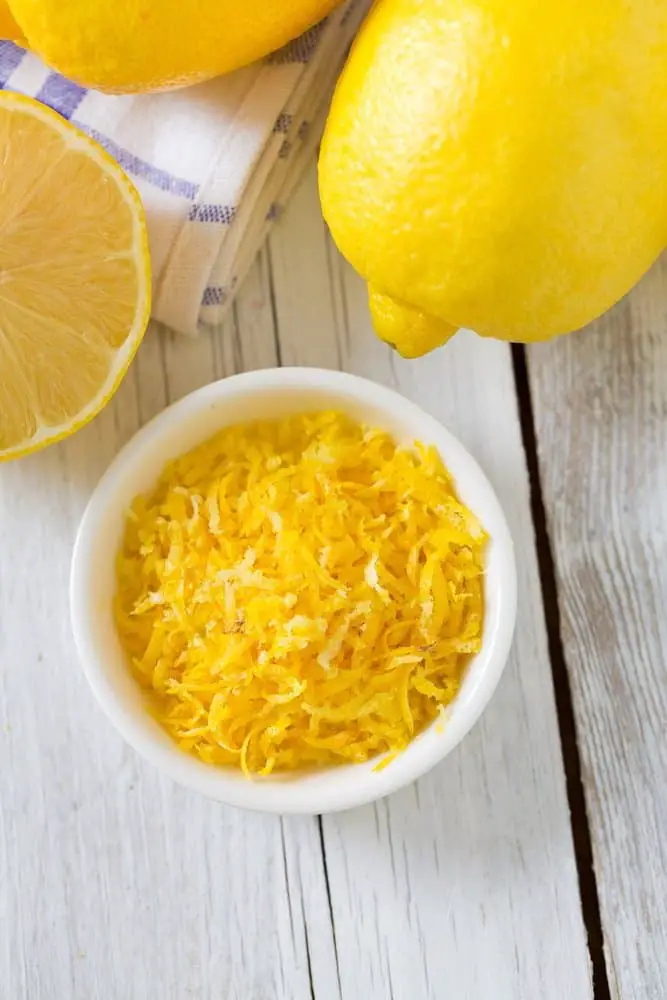Does your recipe call for lemon but you are either allergic to it, or you have run out of it (or both)? If so, do not be disheartened.
I have been in this situation, and for the first few times, I did not know what to do so I just postponed on whipping up the recipe until the next day. But after a couple of times that this has happened to me, I decided to do a bit of research, and as it turned out, there are actually plenty of substitutes for lemon that you can try.
But of course, you might be wondering—what is the best substitute for lemon juice. That would certainly depend on what is the type (taste and consistency) of the dish that you plan to prepare. With that in mind, let us determine the best lemon substitute for your needs below:
The Best Substitute for Lemon Juice Revealed!
As I have mentioned, there are many lemon substitutes that you can use. Below are some of the best lemon substitutes that you can use along with some information on which types of dishes they are great for.
Lime Juice
Lime is most probably the closest fruit to lemon. They both came from the citrus family, and their tastes are quite similar. Same with lemon, lime also contains high amounts of vitamin C and essential minerals, so it also delivers the same health benefits. That is the reason why I have placed it at the top of this list.

Lime Juice
The only difference between the two is lemon gives off a taste that is a bit sweeter, but when placed in cocktail recipes, this difference is already considered negligible. You can also use this substitute for sweet dishes and baked goodies.
Please keep in mind that this is only the most suitable substitute for lemon juice for canning recipes. For this purpose, you need to make use of a bottled lime juice. Avoid the freshly squeezed ones as those are not acidic enough to prevent botulism.
Orange Juice
If you are not allergic to citrus, another great substitute that you can try is orange juice. This is perfect for recipes that use lemon juice not because of its flavor but because of its acidity (like baked goodies). This is also a fantastic substitute to lemon juice in sauce and salsa recipes.
Citrus Zest

If you have used up all the juice of your lemons and it is still not enough for your recipe, you can add more lemon flavor to your recipe by collecting the zest of your lemons and add it to your dish.
Lemon zest contains higher concentrations of vitamin C and other essential nutrients as compared to lemon juice. It also offers the same flavor and smell and is recommended for cocktails and different types of beverage that require lemon juice.
Keep in mind that lemon zest is also highly concentrated when it comes to its flavor and that is why a 1:2 substitute of zest to juice is recommended.
Vitamin C Solution
Some recipes use lemon juice to prevent their oxidation and extend their lifespan. If you are preparing dishes that use lemon juice for this purpose, you can make use of a vitamin C solution instead.
What you can do is to mix a vitamin C solution with a powder form of vitamin C and add it to your recipes. But please use only half of the amount of lemon juice that the recipe requires.
Citric Acid
Canning recipes need the acidity of lemon juice. This goes the same for jam and jelly recipes. For these purposes, you can make use of powdered citric acid. This substitute is available in specialty health food stores.
But please be reminded that citric acid is 10X more concentrated than lemon juice and that is why you should use it sparingly.
Vinegar
If you do not need the sweetness that lemon juice can provide, you can take advantage of vinegar. This substitute does not contain any sweetness but is considered to carry a certain level of acidity which is recommended for savory dishes. It is also recommended for salad dressings, salsas, ceviche, and guacamole.

Vinegar
Since the taste of vinegar is quite overwhelming, it is recommended that you add this ingredient in small quantities only. Start with adding half of the amount of the lemon juice needed in the recipe. Adjust it according to your preference as you go on.
You can use any type of vinegar including white wine vinegar, apple cider vinegar, and red wine vinegar.
White Wine
Because of its acidity, white wine is also an excellent option for substituting lemon juice. This is a great alternative for people who are allergic to citrus fruits, but since its taste is far from that of lemon, you should use this as your last resort.

White Wine
Also, please keep in mind that white wine is more acidic than lemon juice. Because of this, you should only use half of the amount of lemon juice needed.
Tips to Keep in Mind When Substituting Lemon Juice in Recipes
If you have no idea how to use the substitutes mentioned above, here are a few tips that you may want to take into consideration:
• When replacing lemon juice in baked goodies,
– take a look if the recipe contains another acidic ingredient other than the lemon juice. This is needed to make the dough or batter rise.
– If not, you should substitute the lemon juice with another citrus juice.
– If you are allergic to citrus fruits, you can use yogurt, buttermilk, and vinegar instead.
• When replacing lemon juice in savory dishes,
– Add an equal amount of citrus juices (like lime or orange juice).
– When using white wine or white vinegar, use only half the amount of lemon juice stated in the recipe.
In Summary
Lemon Juice is the most widely used citrus fruits in the food industry. Sadly, there will be times when the lemon juice that you have on hand is not enough for the recipe that you want to prepare. Or worse, you may be allergic to this citrus fruit.
If this happens to you, try using the best lemon substitute mentioned. Please adhere to the tips provided when you do so you can perfect your recipe!
